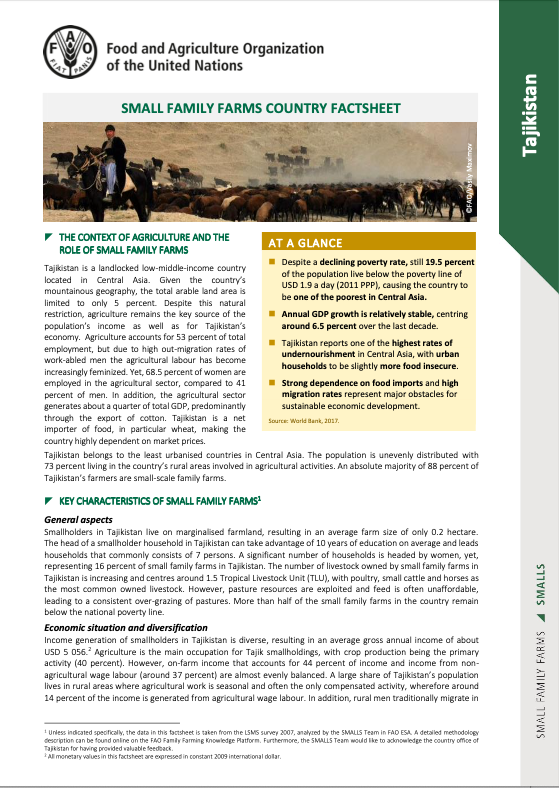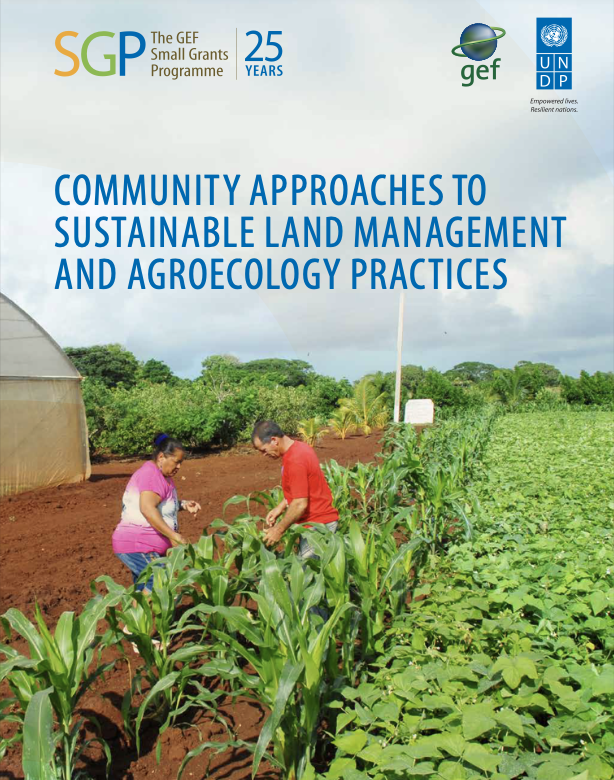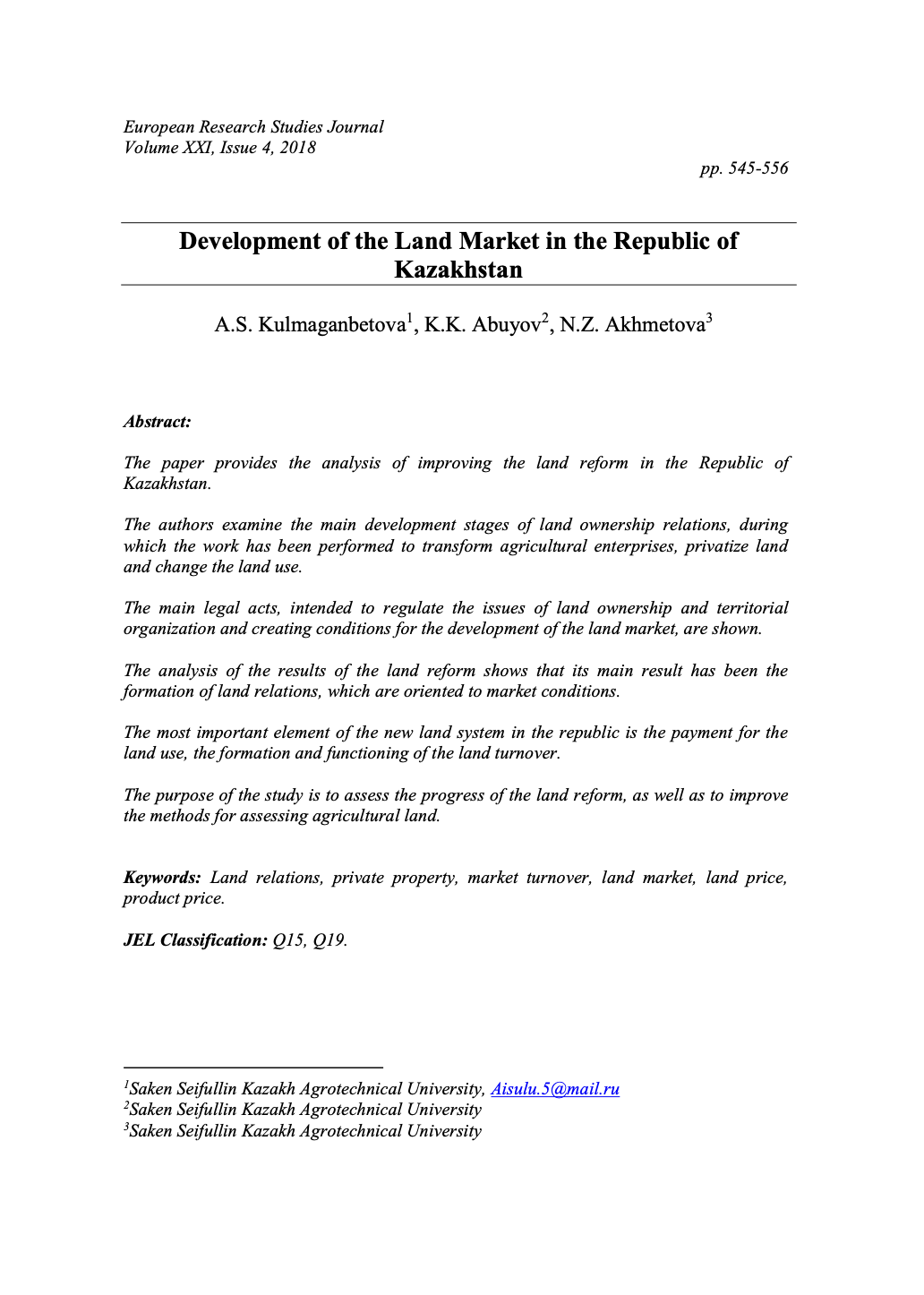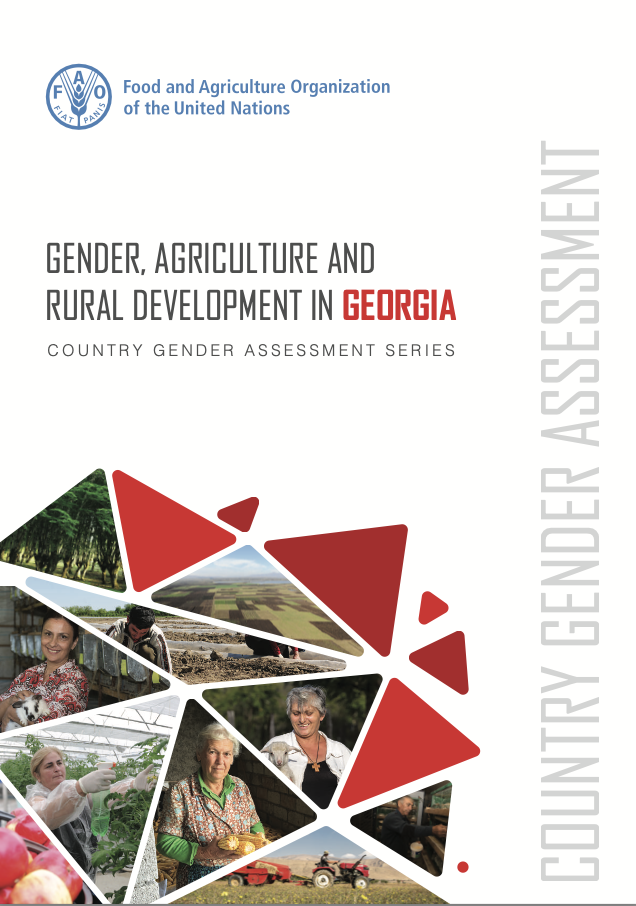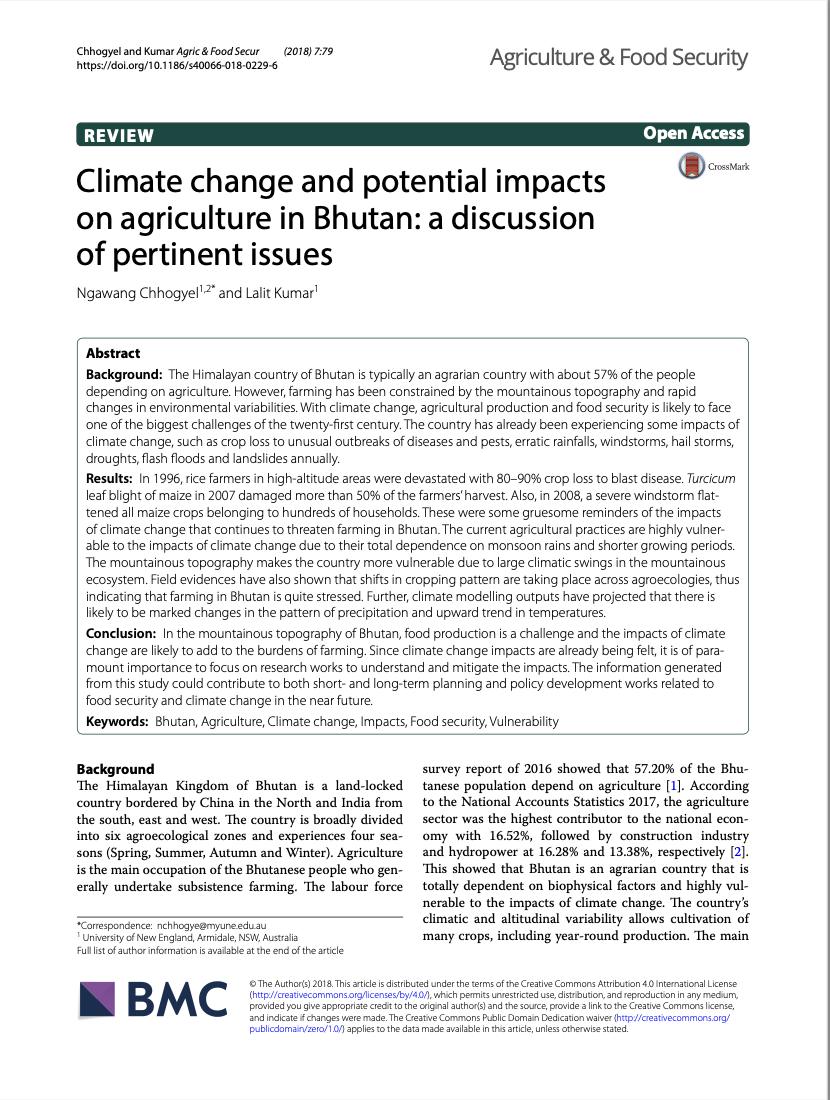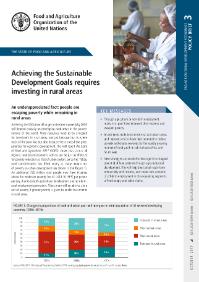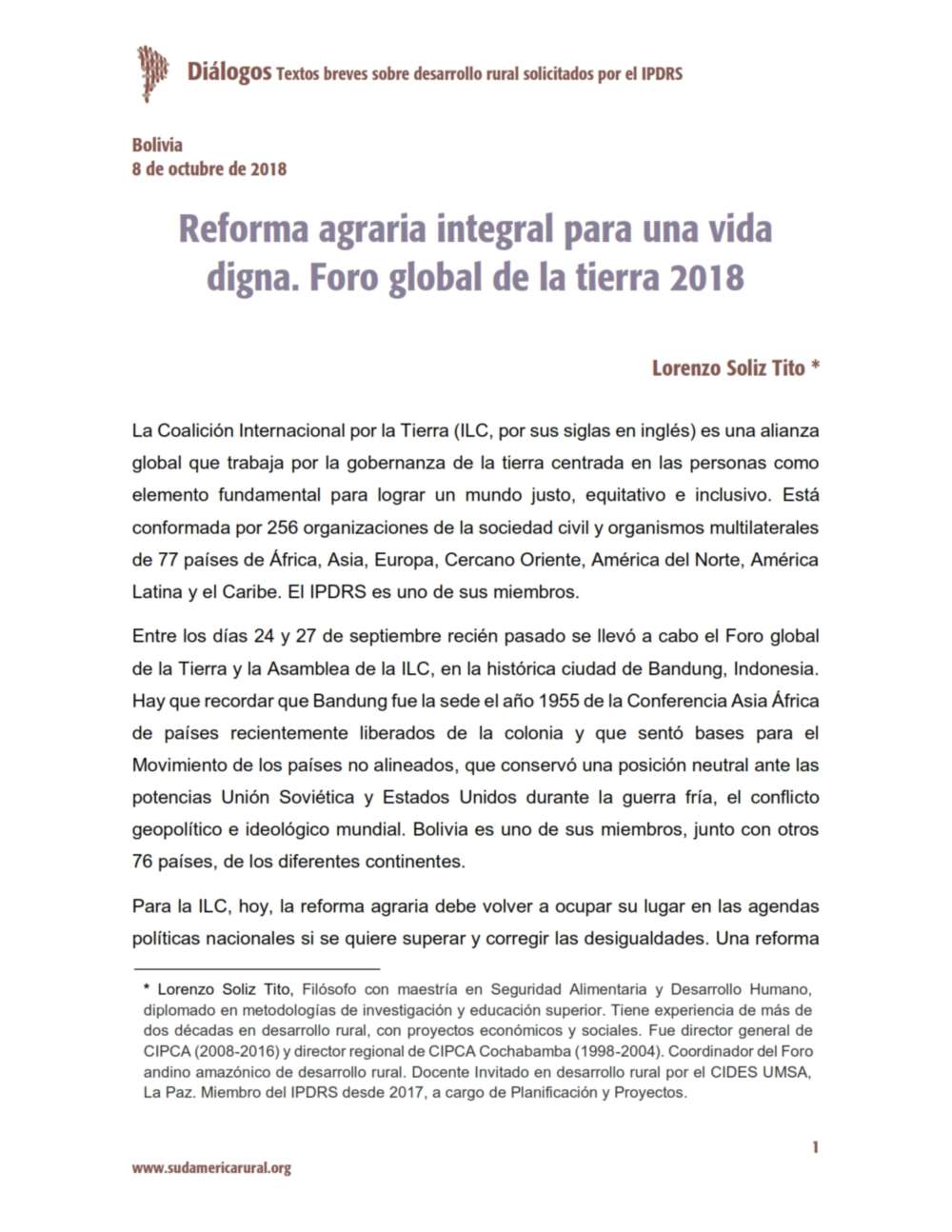Small Family Farms Country Factsheet: Tajikistan
Although only 5 percent of Tajikistan's land area is farmable due to the country's mountainous geography, agriculture accounts for 53 percent of total employment. Among those households that engage in agriculture, almost 90 percent can be classified as small family farms. With 0.2 hectares on average, Tajikistan's smallholders operate on very marginalized farmland which makes it less surprising that on-farm income and income from non-agricultural wages are almost evenly balanced.

